WHEN CHILDREN BECAME PEOPLE
WHEN CHILDREN
The Birth of Childhood in Early Christianity
BECAME PEOPLE
0. M. BAKKE
Translated by Brian McNeil




CONTENTS
ACKNOWLEDGMENTS
 ost of this book was written while I was a visiting scholar at Luther Seminary in the academic year 2001-2002. I am grateful to Professor Todd W. Nichol for his hospitality and friendship during that time, not least because he read parts of my manuscript and was a good dialogue partner. I also wish to thank the Lee, Bosell, and Moen families, who did so much to make my time at Luther Seminary so valuable for my whole family. I also wish to thank the governing body of the School of Mission and Theology in Stavanger for allowing me to spend one year doing research on this subject, without other academic obligations.
ost of this book was written while I was a visiting scholar at Luther Seminary in the academic year 2001-2002. I am grateful to Professor Todd W. Nichol for his hospitality and friendship during that time, not least because he read parts of my manuscript and was a good dialogue partner. I also wish to thank the Lee, Bosell, and Moen families, who did so much to make my time at Luther Seminary so valuable for my whole family. I also wish to thank the governing body of the School of Mission and Theology in Stavanger for allowing me to spend one year doing research on this subject, without other academic obligations.
I also wish to thank the staff in the library of the School of Mission and Theology, Turid Helgeland, Trine Olsen Lande, and the Reverend Arne Samuelsen, for excellent service.
My colleague, Professor Thor Strandenoes, suggested the idea of studying children in the early Christian world. I am sure that, if he had not begun the research project into children and theology at the School of Mission and Theology, this book would never have seen the light of day!
I am grateful to Fortress Press for publishing this book.
Last but not least, I wish to thank Dr. Brian McNeil for translating my manuscript from Norwegian with accuracy and skill (with the exception of Chapters 1 and 3, where he revised my English text). In the interests of accessibility, we have foregone reproducing the many Greek texts in the original manuscript, and we have used transliterated Greek terms. I am confident that the extensive citations in the notes will lead scholars and other interested readers to the full original sources.
This book is published with support from the project "Christian Man and Woman: The Construction of New Identity in Antiquity" in the Norwegian Research Council's Program for Classical Antiquity.
I dedicate this book to our three children, Helena, Maria Yun, and Bjarte Woo. They have caused their parents many sleepless nights and much worry, and have made our lives very busy. But most of all, they are a source of joy and gratitude, and make our lives meaningful.
ABBREVIATIONS
 he text of the New Testament is K. Aland et al., Novum Testamentum Graece, 27th ed. (Stuttgart: Deutsche Bibelgesellschaft, 1993). Quotations in English are taken from the New Revised Standard Version, Anglicized Edition (Oxford: Oxford University Press, 1995). Abbreviations of biblical, apocryphal, and early patristic writings follow those listed in the journal of Biblical Literature's "Instruction for Contributors" (Membership Directory and Handbook [1993], 386-88). Abbreviations of other patristic writings follow those listed in G. W. H. Lampe, A Patristic Greek Lexicon.
he text of the New Testament is K. Aland et al., Novum Testamentum Graece, 27th ed. (Stuttgart: Deutsche Bibelgesellschaft, 1993). Quotations in English are taken from the New Revised Standard Version, Anglicized Edition (Oxford: Oxford University Press, 1995). Abbreviations of biblical, apocryphal, and early patristic writings follow those listed in the journal of Biblical Literature's "Instruction for Contributors" (Membership Directory and Handbook [1993], 386-88). Abbreviations of other patristic writings follow those listed in G. W. H. Lampe, A Patristic Greek Lexicon.
Abbreviations of Philo and Josephus follow S. M. Schwertner, Abkur- zungsverzeichnis, Theologische Realenzyklopadie.
References to classical texts follow the abbreviations listed in N. G. L. Hammond and H. H. Scullard, Oxford Classical Dictionary. Where texts are not found in that list, the lists in H. G. Liddell and R. Scott, A GreekEnglish Lexicon, and in P. G. W. Glare, Oxford Latin Dictionary, are used. Classical texts are cited according to the text and translation of the Loeb Classical Library editions. Text editions from well-known series are not listed in the bibliography, but they are identified in the notes. The following abbreviations are used:


1
INTRODUCTION
 -ow did Christians in the ancient world deal with children? What was it like to grow up in a Christian household? What did Christians in antiquity think about children? To what extent did children participate in the life of the church? Did they have any specific roles? What influence did Christianity have on how adults thought about children and how children were treated? By asking such questions, I intend to draw as clearly as possible a picture both of the theology of children and of the social history of children during that formative period in Christian history.
-ow did Christians in the ancient world deal with children? What was it like to grow up in a Christian household? What did Christians in antiquity think about children? To what extent did children participate in the life of the church? Did they have any specific roles? What influence did Christianity have on how adults thought about children and how children were treated? By asking such questions, I intend to draw as clearly as possible a picture both of the theology of children and of the social history of children during that formative period in Christian history.
The main focus of the present volume is children in early Christianity (c. 100-450 c.E.). By children I mean real children, not children used as a metaphor for adults as in the common designation of adult Christians as children of God. By children I mean human beings who not yet had become grown-ups. It was customary in the classical period to follow Hippocrates, the father of medical science, in his division of the human lifespan into eight chronologically successive phases. The first three of these were (1) paidion, the small child (until the age of seven); (2) pais, the child (from seven to fourteen); and (3) meirakion, the young person (from fourteen to twenty).' In keeping with this way of understanding the life cycle, "child/children" in the present book refers to human beings from birth to the age of about twenty.
GROWING ATTENTION TO CHILDREN IN SOCIETY AND RESEARCH
Never before in the history of the Western countries, and probably also in other parts of the world, have the situation of children and issues related to childhood been so much in the focus of public life as they are now. It should come as no surprise then that I, as a Norwegian living at the beginning of the twenty-first century, am interested in this subject. Besides the fact that I am the father of three children, I am a product of a culture that is increasingly concerned with children. Our society is deeply concerned that children experience the love and care that they need for healthy physical and mental development. People of many professions discuss how one can best deal with the serious problems too many children are facing, such as sexual abuse, divorce, and poverty. The quality of schools and day care services, and whether parents should have a real, that is, affordable option to stay home with their children have been hot issues in election campaigns in many locales. There is perhaps no clearer expression of the fact that children and their condition have become a part of the public agenda than the United Nations' declaration of the year 1979 as the year of the children. It is not my task here to consider whether this public interest in issues related to children has improved their general situation.

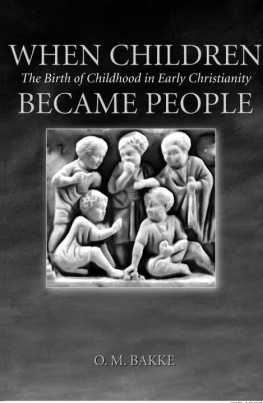

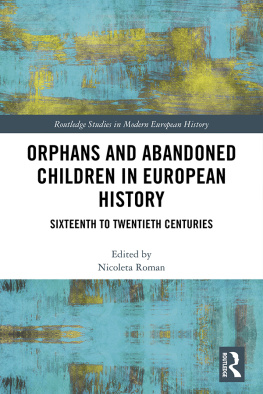
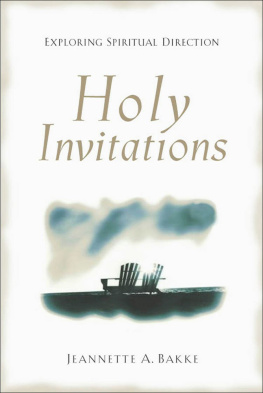
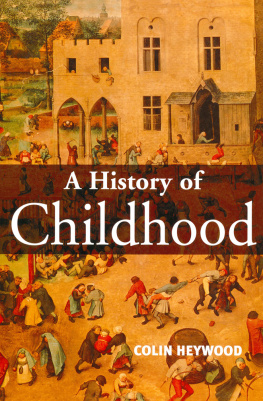
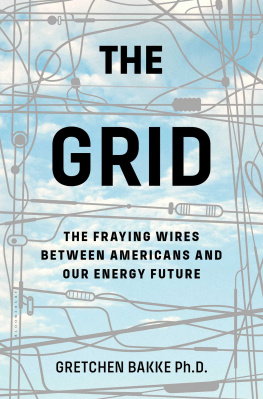
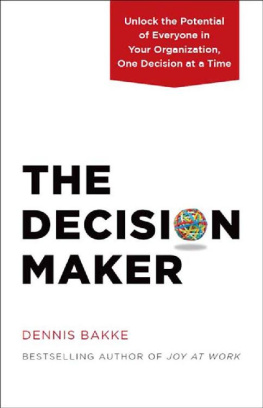







 ost of this book was written while I was a visiting scholar at Luther Seminary in the academic year 2001-2002. I am grateful to Professor Todd W. Nichol for his hospitality and friendship during that time, not least because he read parts of my manuscript and was a good dialogue partner. I also wish to thank the Lee, Bosell, and Moen families, who did so much to make my time at Luther Seminary so valuable for my whole family. I also wish to thank the governing body of the School of Mission and Theology in Stavanger for allowing me to spend one year doing research on this subject, without other academic obligations.
ost of this book was written while I was a visiting scholar at Luther Seminary in the academic year 2001-2002. I am grateful to Professor Todd W. Nichol for his hospitality and friendship during that time, not least because he read parts of my manuscript and was a good dialogue partner. I also wish to thank the Lee, Bosell, and Moen families, who did so much to make my time at Luther Seminary so valuable for my whole family. I also wish to thank the governing body of the School of Mission and Theology in Stavanger for allowing me to spend one year doing research on this subject, without other academic obligations.
 he text of the New Testament is K. Aland et al., Novum Testamentum Graece, 27th ed. (Stuttgart: Deutsche Bibelgesellschaft, 1993). Quotations in English are taken from the New Revised Standard Version, Anglicized Edition (Oxford: Oxford University Press, 1995). Abbreviations of biblical, apocryphal, and early patristic writings follow those listed in the journal of Biblical Literature's "Instruction for Contributors" (Membership Directory and Handbook [1993], 386-88). Abbreviations of other patristic writings follow those listed in G. W. H. Lampe, A Patristic Greek Lexicon.
he text of the New Testament is K. Aland et al., Novum Testamentum Graece, 27th ed. (Stuttgart: Deutsche Bibelgesellschaft, 1993). Quotations in English are taken from the New Revised Standard Version, Anglicized Edition (Oxford: Oxford University Press, 1995). Abbreviations of biblical, apocryphal, and early patristic writings follow those listed in the journal of Biblical Literature's "Instruction for Contributors" (Membership Directory and Handbook [1993], 386-88). Abbreviations of other patristic writings follow those listed in G. W. H. Lampe, A Patristic Greek Lexicon.


 -ow did Christians in the ancient world deal with children? What was it like to grow up in a Christian household? What did Christians in antiquity think about children? To what extent did children participate in the life of the church? Did they have any specific roles? What influence did Christianity have on how adults thought about children and how children were treated? By asking such questions, I intend to draw as clearly as possible a picture both of the theology of children and of the social history of children during that formative period in Christian history.
-ow did Christians in the ancient world deal with children? What was it like to grow up in a Christian household? What did Christians in antiquity think about children? To what extent did children participate in the life of the church? Did they have any specific roles? What influence did Christianity have on how adults thought about children and how children were treated? By asking such questions, I intend to draw as clearly as possible a picture both of the theology of children and of the social history of children during that formative period in Christian history.